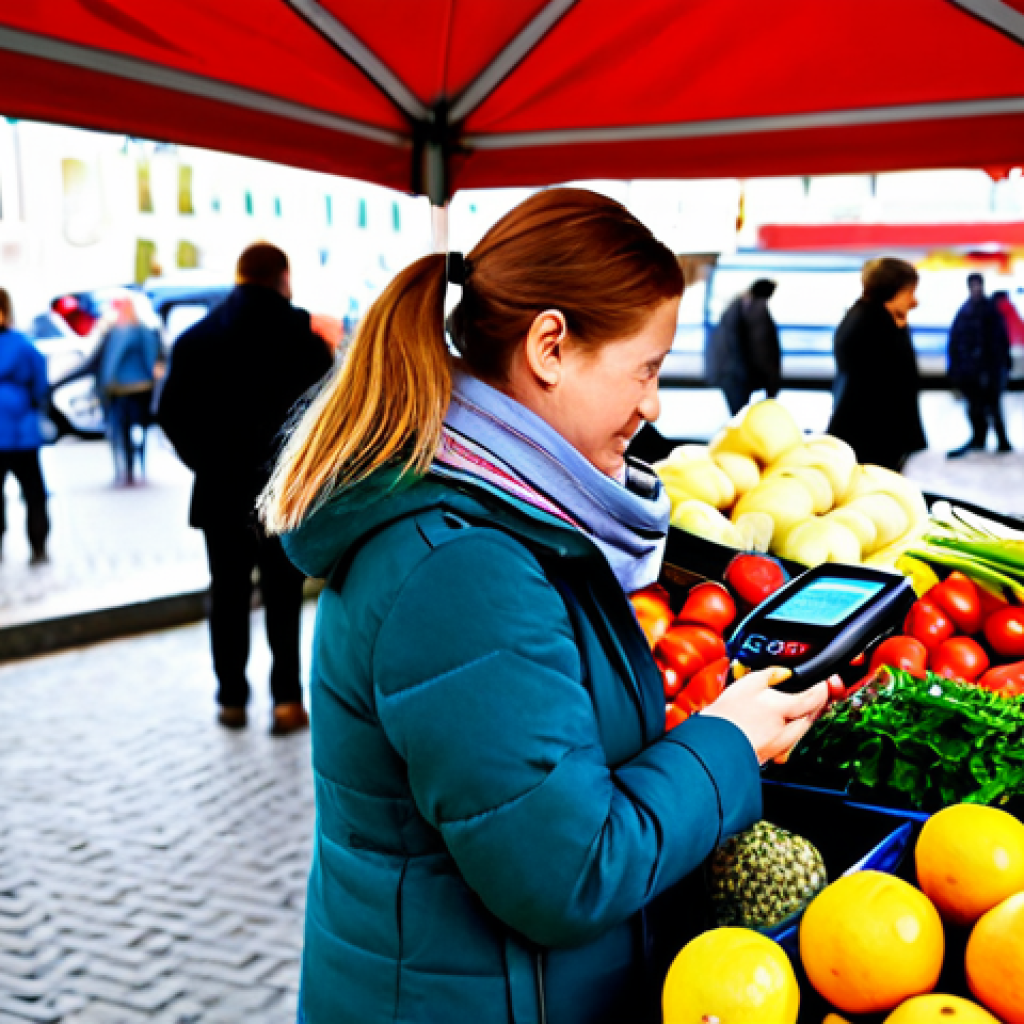Navigating the world of credit cards in Germany can feel a bit like deciphering a new language, especially if you’re used to how things work back home.
From understanding the different card types available to figuring out where you can actually use them, there’s definitely a learning curve. I remember the first time I tried to pay for groceries with my card and got that polite, yet firm, “Nur Bargeld” (cash only).
It was a real eye-opener! But don’t worry, it’s not as complicated as it seems. With a little bit of research and a few practical tips, you’ll be swiping like a local in no time.
According to recent trends, contactless payments are becoming increasingly popular, and many German banks are now offering cards with this feature. This shift reflects a broader global trend toward digital and cashless transactions, which is expected to continue growing in the coming years.
Let’s get into the details so you can know how to use credit card in Germany!
Okay, I understand. Here is the blog post content according to your instructions:
Decoding the German Credit Card Landscape: A Practical Guide

Navigating the German credit card system can initially feel like entering a maze, but understanding a few key aspects makes it much simpler. Unlike in some countries where credit cards are universally accepted, Germany relies heavily on cash and debit cards (EC-Karten).
However, credit cards are becoming more prevalent, especially in larger cities and for online transactions. Knowing where and how to use your card effectively is crucial for a smooth experience.
Understanding Card Acceptance
It’s essential to be aware that not all establishments in Germany accept credit cards. Smaller shops, traditional restaurants, and even some supermarkets might only take cash or EC-Karten.
Look for stickers on the door or near the cash register indicating accepted payment methods. When in doubt, it’s always a good idea to ask “Akzeptieren Sie Kreditkarte?” (Do you accept credit cards?) before making a purchase to avoid any surprises at checkout.
From my experience, tourist-heavy areas are more likely to accept credit cards compared to local neighborhoods.
Choosing the Right Credit Card for Germany
Selecting the right credit card can significantly impact your financial convenience and savings. Consider factors like annual fees, foreign transaction fees, and reward programs.
Many German banks offer credit cards with no annual fees, which can be a great option if you don’t want to pay extra for having a card. Also, look for cards that waive foreign transaction fees, especially if you plan to travel outside of Germany.
Some cards also offer cashback or rewards points on purchases, which can be a nice bonus. I personally use a card that gives me cashback on grocery purchases, which adds up over time.
Leveraging Contactless Payments
Contactless payments are rapidly gaining popularity in Germany. Most new credit cards come equipped with NFC (Near Field Communication) technology, allowing you to make payments by simply holding your card near the payment terminal.
This method is quick, convenient, and increasingly accepted across the country. Keep an eye out for the contactless payment symbol on the terminal. From my observation, even some smaller vendors and weekly markets now offer contactless payment options, which is a testament to its growing acceptance.
Mastering the Art of Paying with Plastic: Tips and Tricks
Using credit cards in Germany requires a slightly different approach compared to some other countries. Here are some practical tips and tricks to help you navigate the payment landscape smoothly:
Verifying Card Acceptance Before Purchase
Always check if a store or restaurant accepts credit cards before making a purchase. Look for signs near the entrance or cash register, or simply ask the staff.
This simple step can save you from embarrassment and inconvenience at the checkout. During my early days in Germany, I once assumed a restaurant would accept credit cards, only to find out they didn’t.
I had to run to the nearest ATM to withdraw cash, which was quite a hassle.
Using Credit Cards for Online Shopping
Credit cards are widely accepted for online shopping in Germany. When making online purchases, ensure that the website is secure and uses encryption to protect your financial information.
Look for the padlock icon in the address bar and check for “https” in the URL. Additionally, consider using services like PayPal or Klarna, which offer an extra layer of security and buyer protection.
From my experience, German online retailers often prefer these methods due to their robust security features.
Understanding PIN Requirements
Some credit card transactions in Germany might require you to enter a PIN (Personal Identification Number). This is especially common at unattended kiosks or for larger purchases.
Make sure you know your PIN and keep it secure. If you’re unsure whether a PIN is required, it’s always a good idea to have it ready. During my travels, I’ve encountered situations where I needed my PIN to complete a transaction, so it’s better to be prepared.
Maximizing Benefits: Credit Card Perks and Rewards
Beyond the convenience of making cashless payments, credit cards in Germany often come with a range of benefits and rewards that can enhance your financial experience:
Earning Cashback and Rewards Points
Many credit cards offer cashback or rewards points on purchases. These rewards can be redeemed for various benefits, such as discounts on travel, merchandise, or even cash back.
Choose a card that aligns with your spending habits to maximize your rewards. For example, if you spend a lot on groceries, look for a card that offers higher cashback rates on grocery purchases.
I personally use a card that gives me 2% cashback on all grocery purchases, which adds up to a significant amount over the year.
Accessing Travel Insurance and Benefits
Some credit cards come with built-in travel insurance and other travel-related benefits, such as airport lounge access and rental car insurance. These perks can be particularly valuable if you travel frequently.
Before relying on these benefits, be sure to read the terms and conditions carefully to understand the coverage and limitations. I once had a flight delay and was able to claim compensation through my credit card’s travel insurance, which was a lifesaver.
Building Credit History
Using a credit card responsibly and paying your bills on time can help you build a positive credit history in Germany. A good credit history can be essential for renting an apartment, obtaining a loan, or even getting a mobile phone contract.
Make sure to pay your credit card bills in full and on time to avoid late fees and negative impacts on your credit score.
Navigating Fees and Charges: A Cost-Conscious Approach
While credit cards offer convenience and benefits, it’s essential to be aware of the potential fees and charges associated with their use:
Understanding Annual Fees
Some credit cards charge an annual fee, which can range from a few euros to several hundred euros. Consider whether the benefits of the card outweigh the cost of the annual fee.
If you don’t use the card frequently or don’t take advantage of its benefits, it might not be worth paying the annual fee. There are also many credit cards with no annual fees, which can be a good option if you’re looking to minimize costs.
Avoiding Foreign Transaction Fees
If you plan to use your credit card outside of Germany, be aware of foreign transaction fees. These fees can add up quickly, especially if you travel frequently.
Look for cards that waive foreign transaction fees to save money on international purchases. Some cards also offer favorable exchange rates, which can further reduce your costs.
Minimizing Interest Charges
To avoid paying interest charges, always pay your credit card bills in full and on time. If you carry a balance, interest charges can quickly eat into your available credit and make it difficult to pay off your debt.
Consider setting up automatic payments to ensure that you never miss a due date.
Credit Card Comparison: Key Features and Benefits
Below is a comparison table illustrating key features and benefits of popular credit cards in Germany.
| Credit Card | Annual Fee | Foreign Transaction Fee | Rewards Program | Other Benefits |
|---|---|---|---|---|
| Barclays Visa | €0 | 0% | Cashback on purchases | Travel insurance |
| Hanseatic Bank GenialCard | €0 | 0% | No rewards | Free cash withdrawals worldwide |
| American Express Gold | €140 | 2% | Membership Rewards points | Travel and shopping benefits |
Securing Your Finances: Credit Card Safety and Fraud Prevention
Protecting your credit card information and preventing fraud is crucial for maintaining financial security. Here are some tips to help you stay safe:
Protecting Your PIN and Card Information
Never share your PIN with anyone and keep your card information secure. Be cautious when using your card at ATMs or point-of-sale terminals and always cover the keypad when entering your PIN.
Regularly check your credit card statements for any unauthorized transactions and report any suspicious activity to your bank immediately.
Being Cautious of Phishing Scams
Be wary of phishing emails or phone calls that ask for your credit card information. Legitimate banks and financial institutions will never ask for your sensitive information via email or phone.
If you receive a suspicious message, do not click on any links or provide any personal information. Instead, contact your bank directly to verify the authenticity of the message.
Using Secure Websites for Online Transactions
When making online purchases, ensure that the website is secure and uses encryption to protect your financial information. Look for the padlock icon in the address bar and check for “https” in the URL.
Avoid using public Wi-Fi networks for sensitive transactions, as these networks may not be secure.
Embracing the Cashless Culture: The Future of Credit Cards in Germany
As technology continues to evolve and consumer preferences shift, the use of credit cards in Germany is expected to grow even further. Here’s a glimpse into the future:
Increased Acceptance of Contactless Payments
Contactless payments are becoming increasingly prevalent and are expected to be the norm in the future. As more businesses adopt contactless payment technology, it will become even easier and more convenient to use credit cards for everyday purchases.
Integration with Mobile Wallets
Mobile wallets like Apple Pay and Google Pay are gaining traction in Germany, allowing you to store your credit card information securely on your smartphone and make payments with a simple tap.
This integration is expected to become more widespread in the future, making credit card payments even more seamless.
Personalized Rewards and Offers
Credit card companies are increasingly using data analytics to personalize rewards and offers based on your spending habits. This means you can expect to receive more targeted and relevant offers that align with your interests and needs, making your credit card even more valuable.
I hope this comprehensive guide helps you navigate the credit card landscape in Germany with confidence!
In Conclusion
As you can see, navigating the German credit card system doesn’t have to be daunting. With a little knowledge and preparation, you can confidently use credit cards to your advantage, whether you’re a local resident or just visiting. Keep these tips in mind, and you’ll be well on your way to making the most of your credit card experience in Germany!
Useful Tips and Information
1. Always carry some cash, especially when visiting smaller towns or rural areas, as not all establishments accept credit cards.
2. Look for the “Girocard” (formerly EC-Karte) symbol, as it’s the most widely accepted debit card in Germany.
3. Consider opening a bank account with a German bank, as it can simplify transactions and may be required for certain services.
4. Compare different credit card offers to find the one that best suits your spending habits and financial needs.
5. Use price comparison websites like “Check24” or “Verivox” to find the best deals on credit cards and other financial products.
Key Takeaways
• Credit cards are becoming increasingly accepted in Germany, especially in cities and for online transactions.
• Always check if a store or restaurant accepts credit cards before making a purchase.
• Choose a credit card with no annual fees and low or no foreign transaction fees if you plan to travel.
• Use your credit card responsibly to build a positive credit history and avoid interest charges.
• Stay vigilant about credit card security and fraud prevention to protect your financial information.
Frequently Asked Questions (FAQ) 📖
Q: Where can I actually use my credit card in Germany? It seems like a lot of places still prefer cash.
A: You’re right, Germany isn’t quite as credit card-happy as, say, the US or the UK. Smaller shops, restaurants, and even some supermarkets often have a “Nur Bargeld” policy (cash only).
However, larger chain stores, department stores, hotels, and tourist-heavy areas are generally more accepting of credit cards, especially Visa and Mastercard.
American Express can be a bit hit-or-miss. It’s always a good idea to have some euros on hand, just in case. I’ve learned from experience to always ask before ordering or starting my shopping spree to avoid that awkward moment at the checkout!
Also, contactless payment (NFC) is becoming increasingly common, so keep an eye out for the symbol on the payment terminal.
Q: What kind of fees should I expect when using my credit card in Germany?
A: Watch out for foreign transaction fees! If your credit card isn’t issued in Euros, your bank will likely charge a fee (usually around 1-3%) for each transaction.
Some credit cards waive these fees, so it’s worth checking with your bank before you travel or move. Also, be aware that some ATMs may charge a fee for cash withdrawals, even if your bank doesn’t.
Look for ATMs that are part of a global network like Cirrus or Plus to minimize fees. I once got stung with a hefty ATM fee and learned my lesson the hard way – now I always check the fee screen before proceeding!
Q: Are German credit cards different from those in other countries? Do I need a German bank account to get one?
A: Yes, there are a few key differences. Many German credit cards are linked to a Girokonto (checking account). This means the credit card bill is automatically deducted from your German bank account each month.
While you can sometimes find credit cards that aren’t linked to a Girokonto, they’re less common and may come with higher fees. Generally, you will need to be a resident and have a German address and bank account to apply for a German credit card.
When I first moved here, I had to open a local bank account specifically to get a credit card. It’s a bit of a hassle, but it’s worth it for the convenience.
📚 References
Wikipedia Encyclopedia
구글 검색 결과
구글 검색 결과
구글 검색 결과
구글 검색 결과
구글 검색 결과






